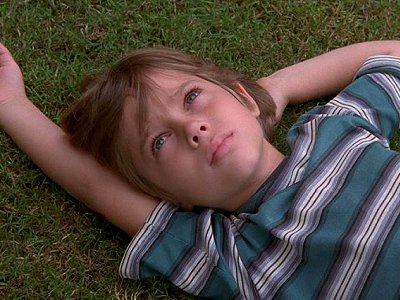
THE CHILD WITH THE MAN IN HIS EYES
This classic of the cinema is a paean to the beauty of growing up and the idle and aimless hours which make us who we are
Any review of the film Boyhood is likely to lapse into numbing cliché, so hard is it to do justice to the achievement. The director, Richard Linklater, has made his own contribution to the global ‘slow’ movement with a movie filmed over a twelve year period, from 2002 to 2014, describing the childhood and adolescence of a Texan boy called Mason Evans, who ages from six to eighteen.
The venture was based on hope and trust. There could be no guarantee each actor would live throughout or be in a position to film at different points. No binding contracts were agreed and yet the ambition to make a slow, sprawling film about the long, apparently unsubstantial years of growing up has resulted in one of cinema’s classics.
There are plot lines. The parents are separated acrimoniously and vie for their two children’s affections in subtle ways. The mother, Oscar winning Patricia Arquette, struggles enduringly as the lone custodial parent and becomes entangled at one point with an alcoholic academic prone to violent manipulation of her family. However, there is no attempt to contrive unrealistic narratives. This is childhood (and parenthood) in all its glorious inconsequentiality.
The children try to make sense of adult schemes and emotions, learn to navigate romantic crushes, locker-room bullying and blended families. They go camping, watch sport and are immersed in Harry Potter. In the moment it amounts to very little, but compounded produces an achingly realistic account of growing up. Above them, the adults make blundering mistakes and bad choices, seek compromises and reach dead-ends, only to start again.
We are formed by our childhood. Some are happy to be defined by it, others resolutely not; no-one can escape from its effects. In contrast to the animal world, it takes a vast length of time to form an adult human being. Intellectual capacity, emotional intelligence and sexual readiness take years to emerge. The casual, unstructured, almost wantonly neglectful ways of being young, though seemingly trivial, forge the person we become.
The over-scheduling of children by their parents today, where time is a thief and the frittering of opportunity a crime, is held gently to account in Boyhood. It is also challenged by the life of Jesus. Rather like a Linklater film, certain points are ‘filmed’: the precarious birth, the flight to Egypt, the visit to Jerusalem where Jesus was left behind, his emergence at the time of John the Baptist. In between his life must have been full of the negligible stuff of growing up. Yet God was at work from an early age to form the Saviour he had sent. We will never know how because of the scarcity of material available to us, but it is an indication that part of the maturing of every child is a spiritual awareness to go with their emerging intellectual, emotional and sexual development.
Our prayer for the children we know might be that God weaves his thread in those seemingly immaterial moments of being a kid. Boyhood is a paean to the beauty of growing up; the deep worth of the idle and aimless hours which make us who we are.
POPULAR ARTICLES

Obama's Covert Wars
The use of drones is going to change warfare out of all recognition in the next decades.

Through A Glass Starkly
Images of traumatic incidents caught on mobile phone can be put to remarkable effect.

What Are British Values?
Is there a British identity and if so, what has shaped the values and institutions that form it?


